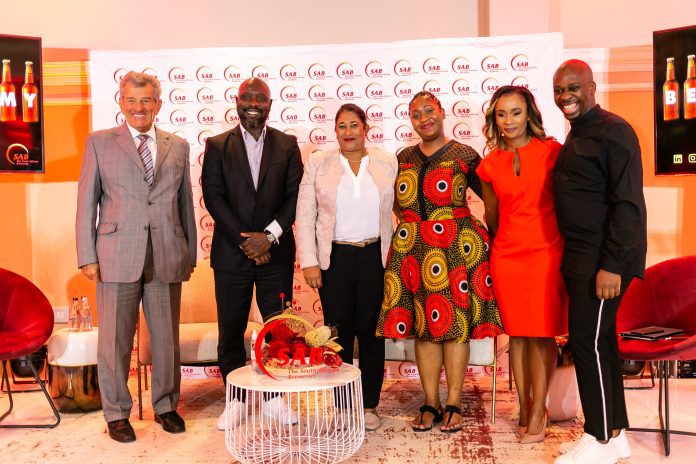In the run-up to Finance Minister Enoch Godongwana’s Budget speech on Wednesday, the SAB is calling on government to adjust the excise duty rate in line with inflation.
Fatsani Banda, economic and excise specialist at SAB, said on Tuesday the company will look beyond South Africa’s borders for future investments if government ignored its concerns.
“While excise tax may be shrugged off as an inevitable fact of life, it is instructive that we need to step back and unpack the regime of excise taxes and the rationale for their existence,” said Banda.
In her “state of the beer economy address” at the Taj Hotel in Cape Town, Banda urged Godongwana to reconsider how excise tax is applied to the beer industry, saying “applying above-inflation increases in excise is neither beneficial to the government, nor the beer industry”.
According to Banda, having a clear excise policy and an adjustment that is not above inflation is the best move for the industry. “This creates the sort of certainty that allows us to plan our investments. It also allows us to stay as a viable business.
“We are for tax compliance, we are in principle encouraged by the fact that there is a call for an excise framework, but we are worried about the inconsistencies and the uncertainty it creates when excise [tax] is increased by above inflation.”
Last year the beer industry, which makes a monthly excise duty payment of about R2.5-billion to the South African Revenue Service for domestic and imported products, saw an excise tax increase of 8%.
Banda said the Covid-19 pandemic has resulted in more than 160 000 job losses, adding that the beer industry also lost about 161 trading days due to alcohol sale bans since President Cyril Ramaphosa introduced the lockdowns in March 2020.
She told her audience that if government did not grant the SAB the relief and certainty it sought, it would have to re-evaluate its investment commitments.
“And if government is not giving us an investment-enabling environment, we will see if there are other countries that are willing to give us that. Mozambique, for instance, has been open to setting up a brewery by way of giving a tax reprieve and reducing the regulatory red tape for establishing business,” she said.
Lucky Ntimane, convener for National Liquor Traders Association, agreed.
He said: “Our minister of finance recently requested public guidance regarding budget priorities for the fiscal. We would suggest that he takes heed of our president’s vision to support SMMEs by budgeting for reduced, or perhaps withdrawn excise duty for the industries hardest hit by the pandemic.” spoke about the role of taverners and bottle stores in resuscitating the beer economy in South Africa.
Ntimane said this suggestion would allow small liquor businesses to recover and grow, thereby stimulating the economy and creating jobs.
Patricia Pillay, CEO of Beer Association of South Africa, said taxing the industry above inflation is not going to solve the drinking problem South Africa is faced with.
“Instead, it will lead to unemployment and fuel the crime rate,” said Pillay, adding that the country’s craft beer industry will be annihilated without an excise tax concession.
“Over and above that … people will not stop drinking, that’s the reality and we should not kid ourselves about that. People will find alcohol, those with a problem with drinking … will continue drinking.”
Also read: Sin taxes likely to add more salt to the gaping wound
Follow @SundayWorldZA on Twitter and @sundayworldza on Instagram, or like our Facebook Page, Sunday World, by clicking here for the latest breaking news in South Africa. To Subscribe to Sunday World, click here.



